In 2024, the agricultural sector aims to achieve an export turnover of about 57-58 billion USD for agricultural, forestry and fishery products. However, each market area and even each country currently has its own regulations on safety standards and animal and plant quarantine (SPS). Therefore, improving the capacity to comply with regulations will be an important basis for agricultural products to be exported smoothly, avoiding import warnings or restrictions.

The three largest export markets for Vietnam’s agricultural, forestry and fishery products are currently the US, China and Japan. Market areas with much room for growth are the European Union (EU), the RCEP region, ASEAN, the Middle East, etc. These are also markets that annually issue many announcements regarding SPS measures, requiring exporting countries to comply.
Increasing pressure on agricultural products
Deputy Director of the Vietnam National Sanitary and Phytosanitary Information and Enquiry Point (Vietnam SPS Office) Ngo Xuan Nam said: The EU's notifications of changes and draft SPS measures in the first six months of 2024 increased by nearly 20% compared to the same period in 2023, the highest among Vietnam's agricultural trade partners. Since 2000, countries in the Asia-Pacific region have tended to increase notifications, from nearly 250 notifications in 2000 to more than 1,100 notifications in 2022.
In addition, Vietnam's main export partners of agricultural, forestry, fishery and food products such as the US, Japan, South Korea and China are the countries with the most notifications, accounting for more than 60%.
In the first six months of 2024, Vietnam received 57 warnings from the EU, compared to 31 in the same period in 2023, an increase of more than 80%. Although this figure only accounts for about 2% of the total number of EU warnings to countries, it is still worth noting for Vietnam. The increase in the number of EU warnings has led to an increase in the frequency of border checks for agricultural products.
Currently, Vietnam still has four items subject to border inspection: dragon fruit with a frequency of 30%, chili 50%, okra 50%, durian 10%. According to regulations, the EU will review every six months to apply enhanced measures, additional inspections, and import management. Accordingly, it is possible to increase/decrease the inspection frequency or require additional food safety certificates and test analysis results. Therefore, if there is no timely solution, the inspection frequency may increase," Mr. Nam emphasized.
According to the Vietnam SPS Office, the reason for this increase in warnings is that exporting enterprises have not really complied with the regulations of importing countries on pesticide residue levels (MRL), because each active ingredient of each country has different regulations. This requires in-depth research and understanding of science and technology to meet the correct requirements. In addition, according to traditional production habits, producers in some places do not have measures and plans to use pesticides, antibiotics, and fertilizers according to instructions.
Meanwhile, the monitoring rate of growing area codes and packing facility codes is not high, especially for some key export fruits such as durian, dragon fruit... Besides, comments on the draft notice on Vietnam's SPS measures are still limited, only a few localities are really interested and have full and timely responses, while this is the right to have opinions to create conditions for agricultural exports.
Mr. Luong Ngoc Quang - International Cooperation and Communication Department (Plant Protection Department) said: For fruits and vegetables, China is currently Vietnam's largest export market. However, to be allowed to export officially, China requires negotiations to open the market for each type of product and sign a protocol. Exporting enterprises must register according to Orders 248 and 249, and declare the code of the growing area and packaging facility.
As for the EU market, although Vietnamese fruits and vegetables enjoy preferential tariffs under the Vietnam-EU Free Trade Agreement (EVFTA), the EU is very concerned about SPS measures, especially MRL levels. If a pesticide has not been established by the EU for MRL and is not in the database, the default level of 0.01 mg/kg will be applied.
Accurately update and quickly meet quality regulations
According to the Vietnam Trade Office in Belgium and the EU, in early June 2024, Vietnam's instant noodles were removed from the food safety control list in the EU because they met EU regulations. This is one of the evidences for the effective and synchronous coordination between state management agencies and enterprises in quickly and accurately updating and promptly responding to EU market regulations and standards.
Mr. Vo Van Hoai - representative of Acecook Vietnam Joint Stock Company said that the Vietnam SPS Office has become a focal point, supporting Acecook Company and businesses in the field of manufacturing and exporting instant food products to learn about market standards, contributing to solving and removing obstacles for businesses when participating in the international market. This is extremely important, especially in the EU market because with the EVFTA Agreement, tariff incentives are an advantage, but because of that, technical measures are also denser, requiring businesses to comply.
In addition to timely and accurate updates on new requirements and regulations of each market, the ability of enterprises to respond also needs to be improved through finding partners with inspection capacity to successfully export goods internationally. According to Mr. Henry Bui - Director of Hoan Vu Science and Technology Company Limited, the company is currently a unit that successfully implements traceability and traceability processes on honey products exported to the US and Europe with leading equipment and technology.
When entering high-quality markets, accurate quality control will avoid warnings that damage the reputation of Vietnamese businesses and agricultural products. Hoan Vu Company is also ready to support inspection work for Vietnamese industries when they want to cooperate to expand the export of agricultural products.
Referring to the importance of implementing regulations related to sanitary and phytosanitary measures, Mr. Le Thanh Hoa - Director of the Vietnam SPS Office said: One of the hottest issues in Vietnam's agricultural exports today is food safety and phytosanitary measures. Due to the lack of awareness of producers and exporters, export standards are often not met.
On the other hand, the production and processing processes and technologies of enterprises still have many stages that are not 100% controlled, which can easily lead to the risk of contamination and pesticide residues. In the process of supporting enterprises to meet the regulations of importing countries, we have found that many establishments need to obtain HACCP and Halal certification but do not have full details of the conditions to be met. Therefore, the Vietnam SPS Office is committed to supporting information on quarantine and plant safety, helping enterprises to best meet the regulations of importing countries.
Source



![[Photo] Prime Minister Pham Minh Chinh chairs a special Government meeting on the arrangement of administrative units at all levels.](https://vphoto.vietnam.vn/thumb/1200x675/vietnam/resource/IMAGE/2025/5/9/6a22e6a997424870abfb39817bb9bb6c)

![[Photo] Magical moment of double five-colored clouds on Ba Den mountain on the day of the Buddha's relic procession](https://vphoto.vietnam.vn/thumb/1200x675/vietnam/resource/IMAGE/2025/5/9/7a710556965c413397f9e38ac9708d2f)



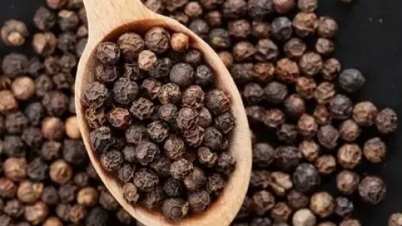
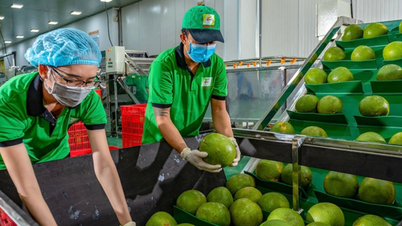

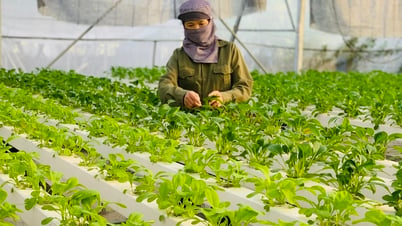
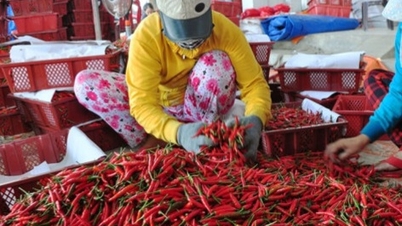





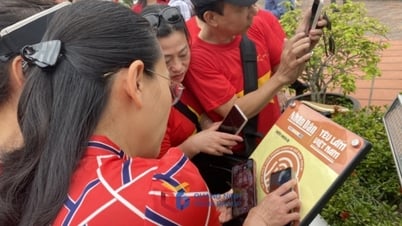
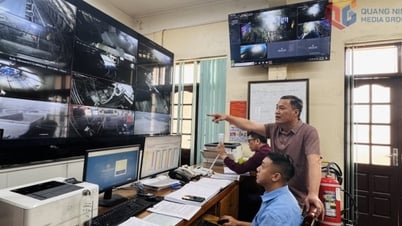






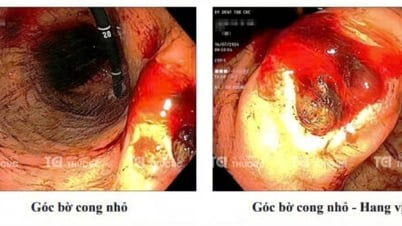
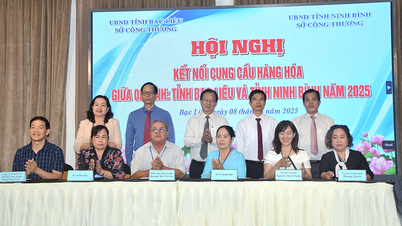

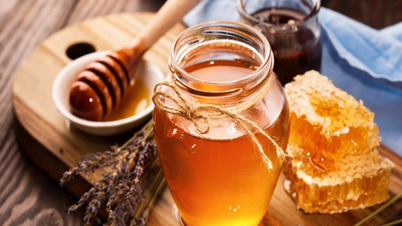





































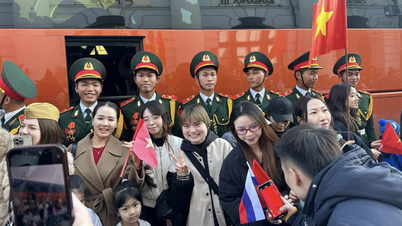







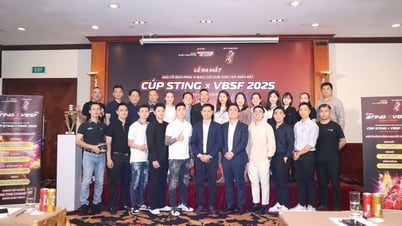

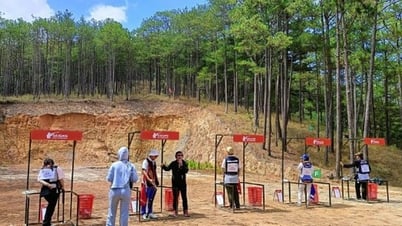



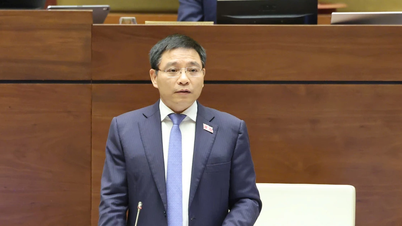













Comment (0)